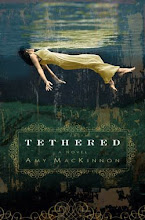The Mountain
Posted by Lynne
Amy's reference to The Myth of Sisyphus is the inspiration for my post this morning. I've loved and leaned on Albert Camus's famous essay all my life. For those unfamiliar with it, or in need of a refresher, the essay is about a man's search for meaning, his struggle to understand absurdity. It's a primer on existentialism.
It's rich on many levels, so I do suggest reading it in it's entirety. The most known portion of it involves a man pushing a boulder up a hill, only to have it roll down again. His fate is to continue to do this forever without ever seeing different results.
After spending several days deep in revision three of my novel, I can relate to Sisyphus. Without changing a single character or plotline, I have expanded and fine-tuned my story. I changed some scene locations, added deeper motives for certain characters' actions, and included more backstory. Unlike Sisyphus, in this attempt to move my efforts up the mountain, I'm getting somewhere.
From the outside looking in, the process of writing a novel is absurd. Read about writers and their process and you'll find these universal truths. A writer spends incalculable hours thinking about the story, writing the story, revising the story, editing the story. To say nothing of what's required to gain representation for the story, or find a home and readers for the story.
I have spent more time with my characters than with some real people I truly enjoy spending time with. I've forfeited beach time, shopping trips and lunches, in favor of hanging out on an imaginary dock and in a child's bedroom. I've written, rewritten and rewritten again a scene on a boat, in a police station, and in a garage. If my little darling ever sells to a publisher and I take my advance and divide it by the hours I've spent writing, I'm certain to be in the red.
Examining writing a novel from the inside out, is a different matter. What some see as absurdity is full of meaning to the writer. For me, each revision strengthens my faith. I'm more certain than ever that I have an important story to tell. I'm the person to tell it, and someday a reader or two will enjoy the concrete reality of my sisyphusian efforts.
At the end of Camus's essay, he sums up the search for meaning beautifully. He concludes that the struggle itself is enough to fill a man's heart. One must imagine Sisyphus happy.
When I'm writing, I'm happy. Though I admit, getting to the top of the mountain would be nice.


